
Ehiaze Ehimen
Senior Research Fellow, Centre for Environmental Research Innovation and Sustainability (CERIS), Atlantic Technological University
Dr. Ehiaze Ehimen is a Senior Research Fellow in Developmental Sustainable Energy Systems at Atlantic Technological University, Sligo. He completed a PhD in Physics (Energy Systems) from the University of Otago, Dunedin, New Zealand in 2010, prior to which he had a European MSc in Environmental Technology and Management from De Montfort University, Leicester, UK. Dr Ehimen has worked extensively on a range of renewable energy, environmental technology, waste utilisation and bio-processing optimisation projects in a variety of research projects, roles and institutions in different European countries. He is currently the coordinator and lead PI of the Irish Research Council ( IRC) COALESCE award funded CEANGAL project which is focused on transnational research collaboration to afford improved renewable energy uptake in Sub-Saharan African communities, Ehiaze is also the coordinator and principal of the Sustainable Energy Authourity of Ireland (SEAI) funded MOBILISE project which researches economic, political, and technological factors affecting the implementation of energy efficiency measures in Traveller communities in Ireland. Previously, he was the Project Coordinator for the Rep. of Ireland for the EU INTERREG VI Renewable Engine project (2018-2021). Here, in collaboration with a local SME, Organic Power, he contributed to the development of a small scale AD plant for decentralised gas and electricity generation. He was also a PI on the EU NPA funded SYMBIOMA project (2019-2022) which supported bio-based industries in sparsely populated EU Atlantic regions with mechanisms for valorising their waste streams.
Previously, Dr. Ehimen worked an Researcher at Flemish institute of Technological Research (VITO), Mol, Belgium investigating enzymatic process optimisation and intensification routes (FP7 BIOINTENSE project), and at Aalborg University, Esbjerg, Denmark on the EU INTERREG 4A funded “Large Scale Bioenergy Lab” project and the EU regional fund project “Algae Innovation Centre”.Dr Ehiaze Ehimen, ATU’s Senior Research Fellow,
Less ![]()
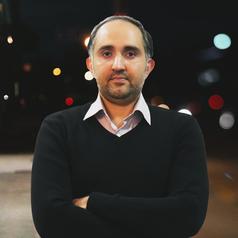
Ehsan Noroozinejad
Senior Researcher, Urban Transformations Research Centre, Western Sydney University
Dr. Ehsan Noroozinejad is a Senior Researcher at the Urban Transformations Research Centre, where he specialises in Smart and Resilient Construction. With a wealth of experience, Dr. Noroozinejad previously held a prestigious position at UBC Smart Structures in Canada before joining the UTRC. As the director of the Resilient Structures Research Group, Dr. Noroozinejad has spearheaded groundbreaking advancements in the field of structural engineering alongside an esteemed team of international researchers. His notable contributions are exemplified by his role as the Founder and Chief Editor of the International Journal of Earthquake and Impact Engineering. Additionally, he holds esteemed positions as an Associate Editor for several distinguished journals and serves as the Engineering Editor for ASCE Natural Hazards Review. Dr. Noroozinejad's prolific and influential academic career is underscored by the publication of over 140 high-impact journal papers,7 books in collaboration with esteemed publishers, and various patents. He is also a co-founding Editor of the Data-Centric Engineering Book Series published by De Gruyter. His research interests encompass a wide range of topics, including smart materials and structures, resilience-based design, artificial intelligence, modular construction, and digital twins in construction. Dr. Noroozinejad's exceptional contributions have been recognised through numerous national and international awards, notably including the prestigious 2022 ASCE Associate Editor Award, which commends his exemplary service in enhancing ASCE's publication activities.
Less ![]()

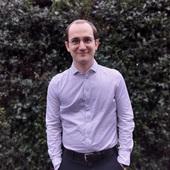
Eike Schneiders
Assistant Professor, School of Electronics and Computer Science, University of Southampton
Less ![]()
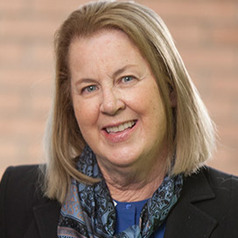
Eileen Crimmins
Professor of Gerontology, University of Southern California
Eileen Crimmins, PhD, is a University Professor and the AARP Chair in Gerontology at the USC Leonard Davis School of Gerontology. She is a member of the National Academy of Sciences and the National Academy of Medicine, is a fellow of the American Association for the Advancement of Science, and has been elected to the American Academy of Arts and Sciences. She is a director of the USC/UCLA Center on Biodemography and Population Health, one of the Demography of Aging Centers supported by the U.S. National Institute on Aging. She is also a Director of the Multidisciplinary Training in Gerontology Program and the NIA-sponsored Network on Biological Risk. Crimmins is a co-investigator of the Health and Retirement Study in the U.S. Much of Crimmins’ research has focused on changes over time in health and mortality. Crimmins has been instrumental in organizing and promoting the recent integration of the measurement of biological indicators in large population surveys. She has served co-chair of a Committee for the National Academy of Sciences to address why life expectancy in the U.S. is falling so far behind that of other countries. She has co-edited several books with a focus on international aging, mortality and health expectancy: Determining Health Expectancies; Longer Life and Healthy Aging; Human Longevity, Individual Life Duration, and the Growth of the Oldest-old Population; International Handbook of Adult Mortality; Explaining Diverging Levels of Longevity in High-Income Countries; and International Differences in Mortality at Older Ages: Dimensions and Sources. She has received the Kleemeier Award for Research from the Gerontological Society of America and the Taeuber award for research from the Population Association of America.
Less ![]()
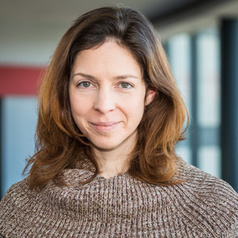
Eileen Culloty
Assistant Professor, School of Communications, Dublin City University
Eileen Culloty is an Assistant Professor in the School of Communications and deputy director of the DCU Institute for Media, Democracy, and Society. Her research interests concern disinformation, media literacy education, and public media. Her book, co-authored with Jane Suiter, Disinformation and Manipulation in Digital Media (2021) was published by Routledge. Eileen coordinates the Ireland Hub of the European Digital Media Observatory and is co-chair of Media Literacy Ireland, the national association of media literacy facilitated by Coimisiún na Meán.
She is also an member of the working-group developing the National Counter Disinformation Strategy, the EDMO working-group on media literacy standards, Meta's working group on Digital Citizenship, and the steering group of iHealthFacts. Eileen is currently involved in the following projects: Local Media for Democracy (European Commission), TeamLit: Teacher education in digital and media literacy (EMIF), ProMS: Promoting Media Literacy and Youth Citizen Journalism through Mobile Stories (Creative Europe).
She previously worked on H2020 Provenance and led a Broadcasting Authority of Ireland project investigating the diversity of public service media during Covid-19, the implementation of EU Code of Practice on Disinformation during Covid-19, and a Science Foundation Ireland outreach project on vaccine misperceptions.
Eileen's research has been published in Journalism, European Journal of Communication, Environmental Communication, Digital Journalism, and Critical Studies on Terrorism. Her co-authored paper on social media and political communication was awarded 3rd place in the International Communication Association's Top Three Faculty Papers for 2018. She has a PhD in communication studies from DCU.
Her research interests include public good aspects of media including the impact of disinformation and its countermeasures, public interest news and media, public understanding of media (media literacy), and policy responses to changes in the media environment.
Less ![]()
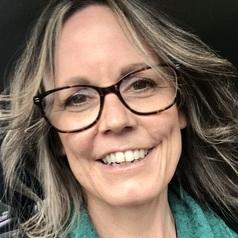
Eileen Joy
Professional Teaching Fellow in Social Work, University of Auckland, Waipapa Taumata Rau
I am a registered social worker and Professional teaching fellow at the University of Auckland. I am also an Honorary Academic at the University of Waikato.
My Doctoral research involved looking at how recent advances in child development knowledge (neuroscience, epigenetics and the developmental origins of health and disease - and developmental psychology more broadly) were operationalised in child protection practice and policy in Aotearoa during the 2010s. This research involved consideration for how policy and practice favoured a social investment approach while excluding and marginalising Mātauranga Māori, and blamed parents, especially mothers, for structural oppressions like colonisation, poverty, and misogyny.
I am particularly interested in how parents, particularly mothers, are blamed in child protection and parenting discourses more broadly. Recent work includes consideration for how substance using mothers are particularly demonised in child welfare.
My research interests and focus areas also include sex, gender, and sexuality. I spent two years with Waikato University as a Research Fellow considering the experiences of people with variations in sex characteristics (intersex) and have published material related to this.
I currently teach into the Bachelor of Social Work and Masters of Social Work Professional programs at the University of Auckland and I am a member of the Aotearoa New Zealand Social Work Journal editorial committee.
Less ![]()
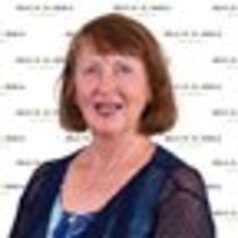
Eileen Scheckle
Senior Lecturer, Nelson Mandela University
Eileen Scheckle is a senior lecturer in language and literacy in the Faculty of Education at Nelson Mandela University. She is passionate about developing all forms of literacy, both inside and outside schools. She has been an active member of LITASA, the Literacy Association of South Africa, for a number of years and uses the LITASA conference to provide spaces for various literacy endeavours to be shared and promoted. She encourages all her students to read for enjoyment and have a repertoire of books they can recommend to classroom learners one day.
Less ![]()
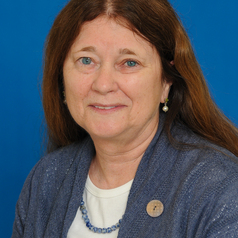
Eileen E. Hofmann
Professor of Oceanography, Old Dominion University
Eileen Hofmann is a Professor and Eminent Scholar in the Department of Ocean and Earth Sciences and a member of the Center for Coastal Physical Oceanography at Old Dominion University. Her primary research focuses on understanding physical-biological interactions in marine ecosystems. Her research has taken her to many parts of the ocean, including Antarctic coastal regions and the Southern Ocean. Her recent research focuses on understanding and predicting harmful algal blooms in Chesapeake Bay and understanding controls on shellfish population dynamics. Eileen’s interest in modeling shellfish populations began with a study of the effects of deepening and widening the Houston Ship Channel on eastern oyster populations in Galveston Bay. From this initial study, Eileen and her colleagues expanded their models to other oyster species, several clam species, abalone, and ocean quahogs. Along the way, the models for shellfish population dynamics were extended to include disease and disease transmission processes and the effects of climate change. Her current shellfish modeling studies consider the competing effects of climate change and offshore wind energy development on commercial shellfish species on the Middle Atlantic Bight continental shelf along the U.S. east coast. These model applications represent a progression that links shellfish population dynamics with climate change, fishing economics, and management. Eileen has been involved in several international global environmental change programs and serves as Co-Chair of the Southern Ocean Observing System. She is also Chair of the National Academies of Sciences, Engineering, and Medicine committee to evaluate the effects of offshore wind energy development on the hydrodynamics of the Nantucket Shoals region.
Less ![]()
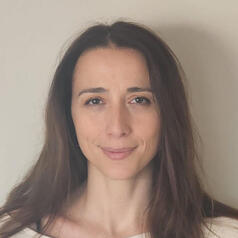
Eirini Karamouzi
Senior Lecturer in Contemporary History, University of Sheffield
I joined the University of Sheffield in September 2014. I hold an MSc in European Politics and Governance and a PhD in International History, both from LSE. I have held a A.G. Leventis Fellowship at SEESOX, St Anthony's College, Oxford (2014-15), a Max Weber Fellowship at the European University Institute in Florence (2013-14) and a Pinto Postdoctoral fellowship at LSE IDEAS (2011-12).
Before moving to Sheffield, I was a Lecturer of European Studies and History at Yale University and in 2019-2021, I was a Visiting Professor of History at the University of Tampere, Finland.
My first book Greece, the EEC and the Cold War, 1974-1979: The Second Enlargement reveals the rationale behind Europe's decision to accept Greece in its circle and details the dynamics of the accession negotiations in the evolving environment of detente and the rise of the Left in Southern Europe.
I am an expert in the history of European integration, Cold War, political and social history of Modern Greece, and Southern Europe.
My second project focused on peace movements and the role of activism in nuclear policy. I was Principal Investigator of the two-year project (2016-2018), 'Protest as democratic practice: peace movements in southern Europe, 1975-1990' (Max Batley Fellowship Awards scheme) with Prof Ziemann and Prof Grasso (Politics). Dr Giulia Quaggio was the Postdoctoral fellow of the project. I published different pieces in International History Review, Journal of Contemporary History and Cold War History.
Along with Luc-Andre Brunet we are running an AHRC networking grant (2022-2024) on ‘Global Histories of anti-nuclear activism in the Cold War’. We have published a special issue on Anti-nuclear activism in South Africa, and an edited volume Beyond the Euromissile Crisis: Global Histories of anti-nuclear activis (Berghahn, 2025), accompanied by a Open Learn MOOC on the same topic.
My latest research looks at the role of tourism as an alternative way of telling Greece’s post-war social, economic and cultural history, and I am cooperating with visual arts and heritage experts, as well as graphic designers and architects to build a Digital Exhibition on ‘Imagining Greece’.
Less ![]()

EJ-Francis Caris-Hamer
PhD student of LGBT+ and Education at The University of Essex, Department of Sociology and Criminology, University of Essex
EJ-Francis Caris-Hamer is a doctoral student at the University of Essex (Department of Sociology). Ze is a qualified educator who has worked as a teacher/leader since 2003, and currently lecturing at the University of Essex. Previous publications include an edited chapter in ‘Diverse Educators: A Manifesto’ (2022), and ‘Consent: Gender, Power and Subjectivity’ (2023). EJ’s research interest includes Queer theory/application, Sexuality, Gender, Education, Relationships and Sex Education, and Criminology.
Less ![]()
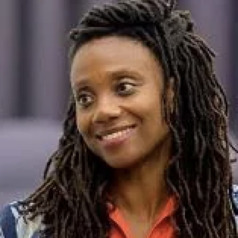
Eka Ikpe
Reader, Development Economics in Africa and Director, African Leadership Centre, King's College London
Dr Eka Ikpe is Director and Reader (Development Economics in Africa) at the African Leadership Centre at King's. Her research offers a critical understanding of socio-economic transformation processes which advances concept-building that centres spaces in Africa and parts of the Global South across the fields of economic development and peace and security. Current themes of interest include, developmentalism, industrial development and structural transformation, peacebuilding, post-conflict reconstruction and the economic costs of conflict and creative economies. Her research has been funded by the Engineering and Physical Sciences Research Council-Global Challenges Research Fund, the Economic and Social Sciences Research Council, Carnegie Corporation of New York and the International Development Research Centre.
Eka is Co-Editor of Peace, Society and the State in Africa and African Perspectives of Leadership and Peacebuilding (Bloomsbury Press) and on the editorial boards of Africa Development, African Security Review and Journal of Leadership and Developing Societies. She is on the Research Advisory Committee of Women for Women International.
Eka's research has supported the work of the United Nations Economic Commission for Africa, the Economic Community of West African States, UK Ministry of Defence, UK All Party Parliamentary Group on Africa, UK Parliament Foreign Affairs Committee and the UK Foreign, Commonwealth and Development Office (formerly DFID). Eka has commented on development, peace and security in Africa for BBC World News, BBC Radio 4, Al Jazeera and Radio France International.
Eka holds a BA in Economics from the University of Leeds, MSc in Economics (with reference to Africa) and a PhD in Economics from the School of Oriental and African Studies, University of London.
Less ![]()
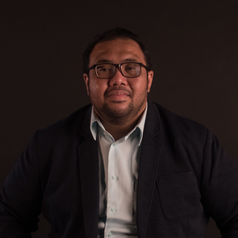
Eka Nugraha Putra
Research Fellow at Centre for Trusted Internet and Community, National University of Singapore
Eka Nugraha Putra obtained his SJD (Doctor of Juridical Science) from Indiana University - Maurer School of Law, the United States. His research focuses on criminal law, cyber law, free speech, and media law. His dissertation is assessing whether the current criminal defamation laws in Indonesia could harm Indonesian democratic values. His dissertation research is carried out by conducting comparative approaches with several countries through analyzing the criminal defamation laws and cases and identifying best practices for free speech and democracy. Putra is a law lecturer at the University of Merdeka Malang, Indonesia. Since 2019, Putra is also working as a legal advisor at the BULLY ID, a platform that focuses on protecting cyberbullying and online harassment victims through three services: relationship health check, revenge porn report, and legal and psychological counseling with licensed experts. Putra was selected as Digital Forensic Lab’s Scholar (2021). The project provides training for scholars in combating disinformation, protecting the integrity of information, and fostering media literacy and resilience in their regions. He was also involved in Indiana University’s Diplomacy Lab (2020), a collaboration project with the U.S. Department of State on researching several countries' compliance with the Convention on the Rights of Persons with Disabilities (CRPD). Putra received Fulbright Scholarship (2018) and AIFIS – Luce Fellowship (2019-2020) for his research entitled "Criminal Defamation and Free Expression in the Digital Age."
Less ![]()
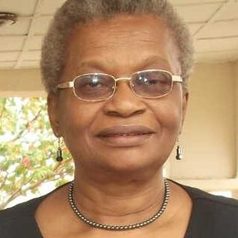
Ekanem Braide
President, Nigerian Academy of Science
Professor Ekanem Braide is a Nigerian parasitologist and the president of the Nigerian Academy of Science. She was vice-chancellor at the Cross River University of Technology, Calabar, and the first vice-chancellor of Federal University of Technology, Lafia, both in Nigeria. Braide is the pro-chancellor of Arthur Jarvis University, Akpabuyo, Nigeria. She is also the first woman president of the Nigerian Academy of Science.
Less ![]()

Ekaterina Gladkova
Lecturer in Sociology and Criminology, Northumbria University, Newcastle
I hold a PhD in Sociology and Criminology (2021) from Northumbria University, an MSc in International Development Studies from the University of Amsterdam (2016) and a BA in Area Studies from Lomonosov Moscow State University (2015).
Less ![]()
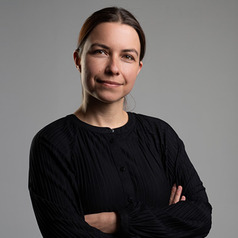
Ekaterina Hertog
Associate Professor in AI and Society, Oxford Internet Institute and Institute for Ethcis in AI, University of Oxford
Ekaterina’s research interests lie at the intersection of digital sociology and family sociology. She leads the ESRC-funded DomesticAI project that scopes new technologies’ potential to free up time now locked into unpaid domestic labour and measures how willing people are to introduce these technologies into their private lives.
First research findings offering predictions about the transformative potential of domestic automation have been published in PLOS ONE as The future(s) of unpaid work: How susceptible do experts from different backgrounds think the domestic sphere is to automation and Technological Forecasting and Social Change as The future of unpaid work: Estimating the effects of automation on time spent on housework and care work in Japan and the UK.
Hertog’s earlier study of never-married single mothers in Japan that provides an in-depth analysis of Japanese women’s decision-making on childbearing issues and the related value systems was published as a book by Stanford University Press titled Tough Choices: Bearing an Illegitimate Child in Contemporary Japan. Her other research includes analyses of gender differences in time use in East Asia and an investigation of digital dating records from one of Japan’s largest matchmakers to scrutinise partner search processes, identifying the social factors that drive individual success and failure on the Japanese marriage market. She has published in journals such as the Journal of Marriage and Family, Demographic Research, and PLOS ONE.
Less ![]()
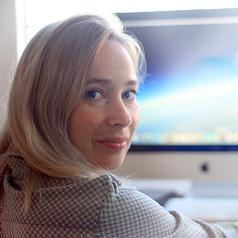
Ekaterina Rzyankina
Lecturer, Cape Peninsula University of Technology
PhD in engineering education at University of Cape Town
Less ![]()

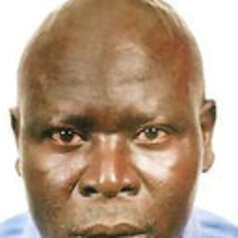
El hadji Sow
enseigant-chercheur, Université Cheikh Anta Diop de Dakar
El hadji Sow est professeur titulaire à la Faculté des sciences et techniques de l'université Cheikh Anta Diop de Dakar au Sénégal. Ses publications portent sur la sédimentologie et la géologie, entre autres.
Less ![]()

Elaine Dewhurst
Senior Lecturer in Law, University of Manchester
Elaine is a senior lecturer in employment law at the University of Manchester and researches mainly in the field of age discrimination law. She has a PhD in law from the National University of Ireland, Cork and completed a post doctoral fellowship in age discrimination law at the Max Planck Institute for Social Law and Social Policy in Germany. She is the senior expert on Age for the European Equality Law Network.
Less ![]()
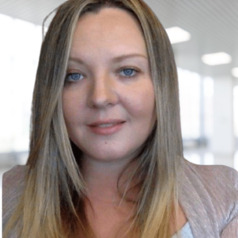
Elaine Jackson
Lecturer of Business Management and Psychology (University of the West of Scotland) : Doctoral Researcher, University of Glasgow
MA(Hons) – Philosophy
MSc – Psychological Studies
MSc(by Research) – Research Methods of Psychological Science
PhD - Psychology (Forensic specialism)
Worked in the private sector (20 years) in various roles covering capital procurement, project management and technical bid writing – Dew Construction Ltd, Dew Pitchmastic PLC, before acting as business development manager and data analysis within the aerospace sector - Craft Prospect Ltd
University of the West of Scotland - Lecturer and module coordinator (BA Business Management)
West Lothian College – Programme Lead (Accelerated HNC/HND Social Science)
University of West of Scotland - Lecturer Psychology
University of the Highlands and Island - Lecturer Psychology
Elaine is interested in examining bias within legal decision-making and the criminal justice system. Her main research interest and specialism is jury decision-making, most recently within rape trials. She is eager to advance this research by examining the attitudes that underpin gender-based violence.
Less ![]()
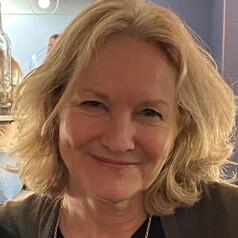
Elaine Kingwell
Senior Research Fellow, Primary Care and Population Health, UCL
Elaine is an epidemiologist with expertise in observational study design, cohort and nested case control studies, measurement of mortality and morbidity, and analysis of population-based linked health longitudinal data. Her research has focused on multiple sclerosis, including risk factors; natural history; measurement, incidence and impact of comorbidity; adherence to treatment; risks and benefits associated with disease modifying treatments; disease incidence and prevalence; and survival and mortality. Elaine joined UCL in 2020 as a Senior Research Fellow in the Institute of Epidemiology & Health. She is a Senior Adviser with the NIHR Research Design Service (RDS), London and a UCL Co-Lead and Expert Methods Adviser for the new NIHR Research Support Service (RSS) Hub delivered by Imperial College London and Partners
Less ![]()

Elaine McCarthy
Lecturer in Nutrition, School of Food and Nutritional Sciences, University College Cork
Dr Elaine McCarthy is a Lecturer in Nutrition at the School of Food and Nutritional Sciences, where she teaches across undergraduate and postgraduate programmes on core nutrition topics including energy and nutrient metabolism, lifecycle nutrition, nutritional assessment and performance nutrition. She is a Lead Investigator at the INFANT Research Centre (https://www.infantcentre.ie/) and a Principal Investigator at the Cork Centre for Vitamin D and Nutrition Research.
Elaine graduated from University College Cork with a BSc in Nutritional Sciences in 2012 and a PhD in Human Nutrition in 2016. Her PhD investigated associations between iron and growth and developmental outcomes in infants and young children in the Cork BASELINE Birth Cohort Study. Elaine began her postdoctoral training at the Cork Centre for Vitamin D and Nutrition Research on the European Commission funded ODIN integrated project on food-based strategies for vitamin D deficiency prevention, exploring the role of vitamin D in neurological development in childhood. Following this, Elaine diversified into the preterm nutrition space, working as co-investigator on the Science Foundation Ireland-funded PiNPoINT (Personalised Nutrition for the Preterm Infant) Study in the INFANT Research Centre.
Elaine’s research to date has been mainly in the field of maternal and paediatric nutrition, with a particular interest in the role of micronutrients, especially iron, in brain function and development in term and preterm infants. Her other main interest has been in the area of nutritional biomarker research, focusing on nutritional status diagnostic criteria and screening in vulnerable population groups. In 2020, she was awarded a prestigious Applying Research into Policy and Practice Fellowship from the Health Research Board in Ireland to develop a screening strategy for iron deficiency in pregnant women and infants.
Elaine has presented her work at multiple national and international scientific meetings and published peer-reviewed scientific journal articles in the areas of nutrition and human health. Elaine has received several awards for her research, including a British Nutrition Foundation Drummond Early Career Scientist Award in 2019 and the Nutrition Society Julie Wallace Award in 2021 for her research on iron deficiency in the first 1,000 days of life. She is a member of the Nutrition Society and American Society for Nutrition and holds a Postgraduate Certificate in Teaching and Learning in Higher Education from UCC.
Less ![]()
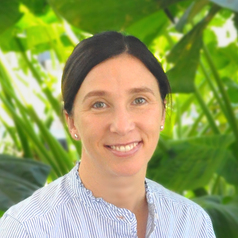
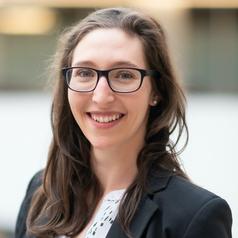
Elana Goldenkoff
Doctoral Candidate in Movement Science, University of Michigan
Elana Goldenkoff received her PhD in Kinesiology at the University of Michigan where she researched how the brain's motor control networks facilitate movement. Elana is passionate about science policy and promoting community and civic engagement among science, technology, engineering, and mathematics (STEM) students and professionals. She explores how people in STEM fields consider the ethical and social implications of their work and runs trainings on building equitable and sustainable community partnerships.
Less ![]()
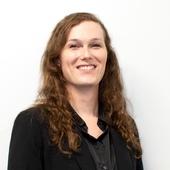
Elana Redfield
Federal Policy Director at the Williams Institute, University of California, Los Angeles
Less ![]()
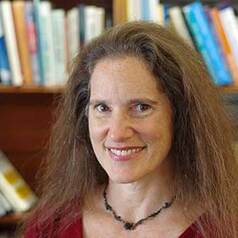
Elana Pearl Ben-Joseph
Pediatrician and Medical Editor at Nemours KidsHealth, Wellesley College
Elana Pearl Ben-Joseph, MD, MPH, is a general pediatrician and medical editor at Nemours KidsHealth, part of Nemours Children’s Health. She received her MPH at Brown University in 2020. In her capacity as visiting scholar at the Wellesley Centers for Women, she is working with the Youth, Media & Wellbeing Research Lab studying the effects of social media on children and adolescents and how parental involvement can impact the experiences of youth when navigating the world of media and electronics.
Less ![]()
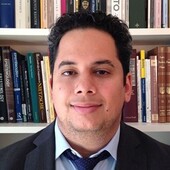

Elba Ramirez
Senior Lecturer and Programme Leader BA International Studies, Auckland University of Technology
The dynamics within and between language learning and teaching, language teacher education, and intercultural communicative language teaching have always fascinated me. My doctoral thesis explored language teachers’ conceptualisations and practices of intercultural communicative language teaching (iCLT). Findings demonstrated teachers had an implicit potential for intercultural teaching and that targeted intercultural professional development appeared to be the best strategy to unlock this potential. I am now branching out into coloniality and decolonising (inter)cultural studies.
Less ![]()
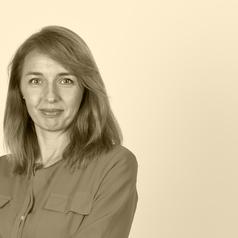
Elea Giménez Toledo
Científica titular del Centro de Ciencias Humanas y Sociales (CCHS - CSIC), Centro de Ciencias Humanas y Sociales (CCHS - CSIC)
Científica Titular del Consejo Superior de Investigaciones Científicas (CSIC) de España.
Coordinadora de la Plataforma Temática Interdisciplinar ES CIENCIA
Directora del Grupo de investigación sobre Libro Académico (ILIA).
Doctora y Licenciada en Documentación por la Universidad Carlos III de Madrid.
Less ![]()
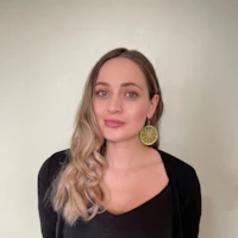
Eleanor Barnett
Leverhulme Early Career Fellow in the School of History, Archaeology and Religion, Cardiff University
I am a historian of food and early modern religion.
As a Leverhulme Early Career Fellow at Cardiff, my research project is entitled 'Eating Exchanges: Food and Religious Encounter in the Early Modern World'. I aim, by exploring moments in which food was exchanged between people of different faiths, to better understand cross-cultural encounter: the divisions, inequalities, and friendships that shaped the early modern world. A focus on food exchange also helps to break down the Christian-centric interpretations of significant early modern processes including the Reformations, colonialism, and globalisation. My major research case studies are situated in the northeast coast of early America and the metropolitan city of Venice.
I am currently converting my PhD thesis into an academic book entitled The Reformation of Food, which exposes the role of food and eating in the division between Protestants and Catholics through the comparative case studies of England and Italy. My other major area of research is the history of food waste; my trade book Waste Not: A Kitchen History of Leftovers is under contract with Head of Zeus. With Katrina Moseley, I am editing a special issue of Global Food History, which is entitled 'Histories of Food Waste and Sustainabiltiy'.
My research in food history speaks to a wider audience and I am regularly involved in public-facing history initiatives and media interviews. Each day, as @historyeats on Instagram, I share food history facts, artwork, and objects to a wonderful community from across the world.
Less ![]()
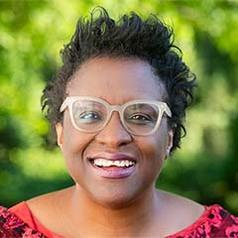
Eleanor Brown1
Professor of Law, Fordham University
Eleanor Brown is a leading scholar of property, migration, globalization, development, and race and the law.
Brown is currently a Professor of Law and International Affairs at the Pennsylvania State University (University Park campus), as well as a fellow at the Rock Ethics Institute. She is a member of the Board of Advisors of the Africana Research Center and an Advisor in the Schreyer Honors College. She was also the founding faculty advisor for the Black Students Association in the School of International Affairs. In recognition of her activism and allyship for marginalized identities, both within and outside academia, Brown was named one of the first recipients of the Ona Judge Award for Human Rights by the Human Rights Society, a joint student organization at Penn State Law and the School of International Affairs.
Brown, a Jamaican national, has previously been a Schwartz Fellow at the New America Foundation, a GWIPP Fellow at the George Washington Institute of Public Policy, and a Reginald Lewis Fellow at Harvard Law School. She has been a member of the board of directors of the Association for Law, Property and Society, the Conference Planning Committee for the Immigration Law Professors Association, and the Fellowship Committee for the Association of University Women. She has also served on the Scholarly Prize Committee for the Law and Society Association.
Brown’s scholarship has been published in the Yale Law Journal, California Law Review, the University of Chicago Law Review, the Michigan Law Review and the New York University Law Review, among many others. She has also published with The New Republic, The New York Times, and the Los Angeles Times and has been a commentator on NPR. Among Brown’s academic accolades, her paper “The Blacks Who ‘Got’ Their 40 Acres” was one of two papers selected in the property category for the Yale/Harvard/Stanford Junior Faculty Forum.
Brown holds a bachelor’s degree in molecular biology from Brown University and a master’s degree in politics from Oxford University, where she was Rhodes Scholar. She earned her juris doctor in 1999 from the Yale Law School and served as a clerk for the Honorable Patricia Wald of the U.S. Court of Appeals for the District of Columbia and the Honorable Keith Ellison of the U.S. District Court for the Southern District of Texas.
Brown was appointed by The Most Honorable Andrew Holness, the Prime Minister of Jamaica, to the Jamaican Education Transformation Commission. She was also appointed to and served on the CARICOM Commission. She has served on the boards of several publicly traded Caribbean companies, and was the youngest director of two subsidiaries of the Bank of Nova Scotia (Jamaica), one of the largest subsidiaries of the largest Canadian bank (by market capitalization). Brown chaired the Conduct Review Committee of the Board for Scotia Jamaica Investment Management. She was a member of the Sugar Enterprise Team, the entity appointed by the Jamaican Cabinet to oversee private sector participation in the Jamaican sugar sector.
Brown was previously the youngest director of JPSCo, the electric utility owned by Korea East West Power, Marubeni Corp. of Japan, and the government of Jamaica. She chaired the Pension Fund Subcommittee of the board. She was also a member of the board appointed by the chancellor charged with septennial review of the operations of the University of Technology in Jamaica. Brown was also an external board member of Caribiz, an association of Caribbean alumnae and students of Harvard Business School and the Wharton School of the University of Pennsylvania, formed to promote capital market development in the Caribbean. Brown is also active in the Anglican (Episcopalian) faith community.
Less ![]()
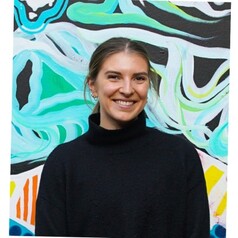
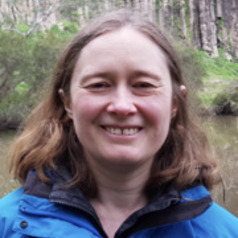
Eleanor Green
Senior Lecturer In Computational Petrology, The University of Melbourne
I gained my PhD from the University of Cambridge in 2011, after which I held post-doctoral research positions at the University of Mainz, the University of Bristol and ETH Zurich. I joined the University of Melbourne in January 2019 as a Senior Lecturer in Computational Petrology.
I model the thermodynamic properties of minerals and melts, and use this modelling to investigate a variety of Earth processes. The models that I make are based on information taken from thousands of experiments on geological materials, as well as computer simulations and observations of rocks in the field. As such, the models serve to summarise our knowledge of the properties of these materials, subject to some interpretation. My primary interest is in improving the process of developing the models - incorporating more information in more meaningful ways, so as to mimic natural materials more accurately and in a wider range of geological contexts. Much of my work builds on the Holland & Powell internally-consistent dataset, and the families of activity-composition relations developed by Roger Powell, Tim Holland, myself and other co-workers. These models are often associated with Roger Powell's program, Thermocalc. I am involved with several projects that apply the thermodynamic models to geological problems. Recent applications include integrated geodynamic and thermodynamic modelling of magma storage and ascent, multiple-reaction thermobarometry for cumulate rocks, and thermodynamic constraints on the formation of the Earth's crust.
Less ![]()
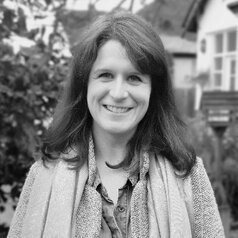
Eleanor Lybeck
Senior Lecturer in Literature, University of Liverpool
I joined the Institute of Irish Studies in 2019. Before moving to the University of Liverpool, I completed postgraduate studies in literature at New York University as a Fulbright scholar and at the University of Cambridge with the support of the AHRC. After finishing my PhD in 2015, I worked as a stipendiary and departmental lecturer at the University of Oxford.
My research interests cover the period since 1800 and fall into two categories: theatre & performance history and Irish literature & culture. I published a book on the circus in Irish literature and culture, All on Show, with Cork University Press last year. I am now working on my second monograph, which explores how English comic opera became a colonial export in the late Victorian and Edwardian periods. At the same time, I am working on an adaptation for live performance of Virginia Woolf's final novel Between the Acts and, with Dr Ataa Alsalloum of Liverpool's School of Architecture, an edited collection exploring aspects of intangible cultural heritage among migrant communities in the UK.
I teach on a wide range of both Irish studies and English modules, and convene modules on writing for radio, migrant writing, and twentieth-century and contemporary Irish writing. Like my research, my teaching tends to be interdisciplinary, combining my interests in literary criticism, theatre and performance studies, and history, and I encourage students to develop their own practical skills through creative critical assessment.
I am always on the look out for new ways to share my research with diverse audiences, both within and beyond the university. In 2008, I founded the production company Sidelong Glance: its mission is to turn academic research into widely accessible theatre, performance and documentary film. Sidelong Glance produced the short film series Whose History? for the Institute of Irish Studies at Liverpool in 2021; another of the company's productions, Wild Laughter, is a set text on undergraduate drama modules in English. In 2017, I was named an AHRC/BBC Radio 3 New Generation Thinker. Since then, I have written, presented and appeared on a number of BBC Radio 3 and Radio 4 programmes. I have also written for various newspapers, magazines and blogs, including Vogue, the Irish Times and HuffPost UK.
Within Liverpool's School of Histories, Languages and Cultures, I am the Deputy Academic Lead for Admissions and Widening Participation.
Less ![]()
- Market Data





















